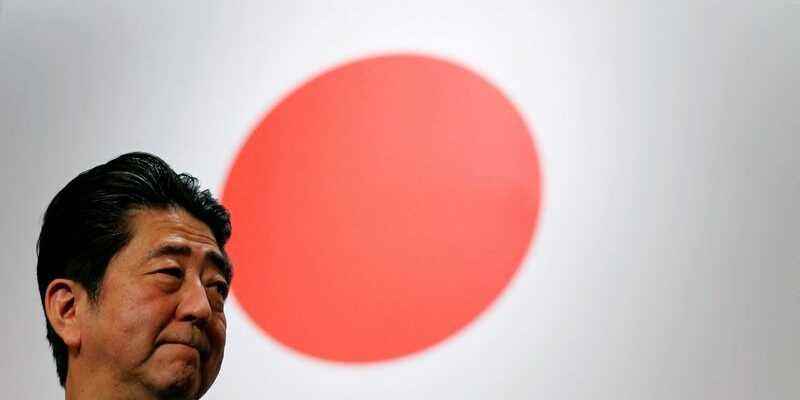In a rare act of political violence that has shocked the nation, Japan’s longest-serving prime minister was gunned down on Friday while campaigning for Sunday’s legislative elections, where his party’s coalition swelled its majority in the chamber. high.
Analysts say Mr Kishida is unlikely to do anything immediately to antagonize lawmakers loyal to Mr Abe, who led the largest faction of Mr Kishida’s Liberal Democratic Party (LDP) after stepping down as Prime Minister in 2020.
But ultimately, his absence and the LDP’s victory in Sunday’s election, aided by a sympathy vote for Abe, could give Kishida the political capital to change his political course.
The conservative coalition led by Kishida’s LDP was expected to increase its majority in the upper house in elections that took place two days after Abe’s assassination.
People close to Mr. Kishida have said that the Prime Minister and his aides want to move towards a normalization of fiscal and monetary policies and to gradually reduce the Abenomics experiment launched nearly ten years ago.
“There is unlikely to be a quick turnaround from Abenomics, or an exit from ultra-free monetary policy,” said Koya Miyamae, senior economist at SMBC Nikko Securities.
“Long term, however, the Bank of Japan needs to consider some form of monetary policy adjustment given issues such as the weak yen,” he added. “This means that former or incumbent leaders of the BOJ will remain strong candidates for the position of next central bank governor.”
Kishida, who belongs to a smaller LDP faction, remains under pressure from Abe and his supporters to maintain massive stimulus and choose a reflationary dove as the next Bank of Japan governor in April.
Abe’s absence could shift the balance of power within the party, diminishing the influence of supporters of big government spending and ultra-liberal central bank policies.
“Abe was the head of a group of lawmakers in the ruling party who were reflationary and pro-big spending, so his absence will have a huge impact on the balance of power within the party,” said Daiju Aoki, chief economist. for Japan at UBS Sumi Trust Wealth Management.
CHANGING THE BALANCE OF POWER
Buoyed by huge public support for his campaign to pull Japan out of chronic deflation, Abe rolled out his “three arrows” in 2013 – aggressive monetary easing, flexible fiscal spending and a long-term growth strategy.
The BOJ’s massive stimulus measures, led by Governor Haruhiko Kuroda, have reversed a relentless rise in the yen that has hurt Japanese exporters, boosted stock prices and improved the business climate. Economists, however, have criticized the lack of a credible growth strategy and reforms to help the economy move up a sustainable gear.
So far, Mr. Kishida has stuck to the Abenomics approach, rolling out large spending programs to cushion the economic blow of the COVID-19 pandemic and, recently, to mitigate the impact of soaring healthcare costs. energy and raw materials.
He also backed the BOJ’s ultra-low interest rate policy, even as other central banks hike rates, sending the yen to its lowest level in two decades.
“When we look at Japan’s gross domestic product, corporate earnings and employment conditions, it’s clear that Abenomics has produced excellent results. What’s important now is to generate wage growth “, said Kishida during a television broadcast on Sunday.
Eventually, Kishida could seek to reduce some of the radical monetary experiment put in place by Kuroda, which has eaten into the profits of financial institutions and crippled pricing in the bond market.
Kishida’s administration was forced to water down Japan’s commitment to a balanced budget after stiff opposition from Abe and his allies. Abe’s death could allow Kishida to focus more on efforts to bring Japan’s public debt burden, the largest in the industrial world, under control.
“Abe was the standard bearer for those who support fiscal expansion. These people have lost their driving force,” said Mikitaka Masuyama, a professor at the National Graduate Institute for Policy Studies. “I wouldn’t say Kishida’s position in the party is rock solid, but he is now more likely than before to have better control over the party.”
While the BOJ is unlikely to reverse its ultra-loose monetary policy anytime soon, the waning influence of pro-growth legislators could also affect Kishida’s choice of BOJ governor.
The Prime Minister has the final say on choosing a successor to Kuroda, hand-picked by Abe to deploy a monetary bazooka to stamp out deflation when his second five-year term ends.
Career central bankers Masayoshi Amamiya and Hiroshi Nakaso are seen as strong contenders, with Amamiya seen as taking a more dovish stance than Nakaso – who had warned of the downsides of prolonged monetary easing.
“Abe would have favored a reflectionist-minded person at the head of the BOJ. The change in the balance of power of the ruling party could affect the choice of BOJ governor,” said Aoki of UBS Sumi.
